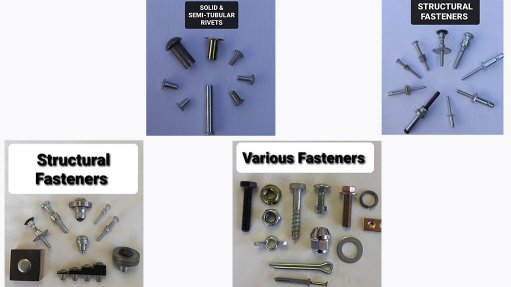Main non-tariff barrier in Africa is infrastructure, potential lies in non-traditional markets
A significant non-tariff barrier (NTB) that business in Africa faces is infrastructure deficiencies, which are hampering growth, specifically for the 16 landlocked countries in Africa that are dependent on maritime-connected economies and their neighbours’ infrastructure, said trade consultancy Trade Research Advisory MD Martin Cameron.
There were a raft of NTBs facing companies doing business in Africa. The difficulty lay not in identifying them, but putting in place mitigation strategies to eliminate or eradicate them, said business organisation Business Unity South Africa economic policy director Lunga Maloyi.
They both spoke during the ‘Non-Tariff Barriers and AfCFTA Trade Agreement Alignment’ panel discussion at transport organisation Transport Forum’s conference on December 3.
“When we ask businesses what they view as the main NTB, they say that it is poor trade infrastructure,” he said.
“Poor trade infrastructure is directly linked to the structural challenges we are seeing in our transport and logistics network [in South Africa]. For example, mining companies lost about R150-billion to R200-billion during 2021 to 2022 because they could not take up the opportunities available during the commodity boom because they could not move their products to meet demand.”
Infrastructure was one of the macro issues that could foster intra-Africa trade, he added.
Information could be another NTB and a lack of trade information and a lack information on regulations and requirements could present a barrier, said Cameron.
“The African Continental Free Trade Area Agreement (AfCFTA) is in full effect. In our conversations with the Department of Trade, Industry and Competition (dtic), there is a noticeable lack of information for the private sector to take up the opportunities that exist under this agreement,” said Maloyi.
“The missing link is information that is readily available to traders and for the governments to effectively communicate opportunities to encourage greater uptake of opportunities under AfCFTA.”
Part of the work over the medium term was to start partnerships with the private sector to roll out advocacy programmes that would present opportunities but also develop practical tools for businesses to take up opportunities, he said.
However, government’s role in communicating to and enabling companies to seize new opportunities was limited, and the AfCFTA would not make much of a difference in the short to medium term from a South African perspective, said Cameron.
“Where the difference comes in is those South African exporters and entrepreneurs that look beyond our traditional markets in the Southern African Development Community.”
The AfCFTA would not make a huge difference for companies already trading in these markets and the opportunities available for them. For them, it was business as usual and a focus on reducing NTBs, he said.
“The real potential is for South African companies that look into non-traditional markets that they are not used to trading with. This is where AfCFTA will make a difference,” he noted.
“Governments cannot make companies drink once they have taken them to the water, and companies must investigate those opportunities and see the upcoming markets opening up for their products under AfCFTA,” Cameron said.
Further, private-sector companies were not absolved from addressing the challenges facing trade in Africa, he emphasised.
While all parties want better and more comprehensive information that is key for fact-based decision-making, it is not always available. The private sector also has a responsibility to make available its information, but some are sceptical and not willing to share information that is asked of them.
“Whether for government or the private sector, more consideration needs to be given to what is needed to make the infrastructure work, including the sharing of relevant information.
“It is difficult to plan for long-term infrastructure. While you rather want a bridge that is too large than too small to support growth over time, if you do this, you immediately sit with budget constraints,” he illustrated.
Richards Bay Minerals required significant motivation to get funding to improve the capacity at the port, which delayed the project, he noted.
“The key to solving this challenge is information, knowledge sharing and making government more effective by working in collaboration with it,” Cameron said.
The big challenges South Africa faced required collaborative effort to tackle, agreed Maloyi.
Article Enquiry
Email Article
Save Article
Feedback
To advertise email advertising@creamermedia.co.za or click here
Press Office
Announcements
What's On
Subscribe to improve your user experience...
Option 1 (equivalent of R125 a month):
Receive a weekly copy of Creamer Media's Engineering News & Mining Weekly magazine
(print copy for those in South Africa and e-magazine for those outside of South Africa)
Receive daily email newsletters
Access to full search results
Access archive of magazine back copies
Access to Projects in Progress
Access to ONE Research Report of your choice in PDF format
Option 2 (equivalent of R375 a month):
All benefits from Option 1
PLUS
Access to Creamer Media's Research Channel Africa for ALL Research Reports, in PDF format, on various industrial and mining sectors
including Electricity; Water; Energy Transition; Hydrogen; Roads, Rail and Ports; Coal; Gold; Platinum; Battery Metals; etc.
Already a subscriber?
Forgotten your password?
Receive weekly copy of Creamer Media's Engineering News & Mining Weekly magazine (print copy for those in South Africa and e-magazine for those outside of South Africa)
➕
Recieve daily email newsletters
➕
Access to full search results
➕
Access archive of magazine back copies
➕
Access to Projects in Progress
➕
Access to ONE Research Report of your choice in PDF format
RESEARCH CHANNEL AFRICA
R4500 (equivalent of R375 a month)
SUBSCRIBEAll benefits from Option 1
➕
Access to Creamer Media's Research Channel Africa for ALL Research Reports on various industrial and mining sectors, in PDF format, including on:
Electricity
➕
Water
➕
Energy Transition
➕
Hydrogen
➕
Roads, Rail and Ports
➕
Coal
➕
Gold
➕
Platinum
➕
Battery Metals
➕
etc.
Receive all benefits from Option 1 or Option 2 delivered to numerous people at your company
➕
Multiple User names and Passwords for simultaneous log-ins
➕
Intranet integration access to all in your organisation


















